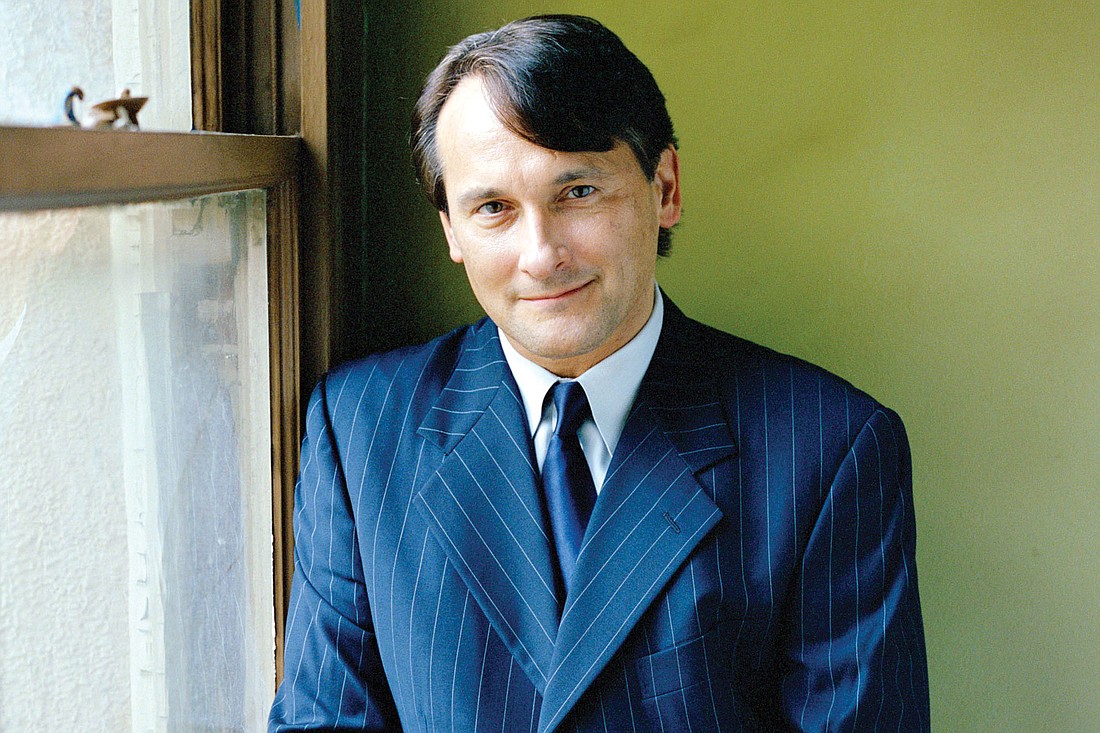- November 27, 2024
-
-
Loading

Loading

We recently attended NPR’s strange but fascinating “From the Top,” when it was recorded live at the Sarasota Opera House. I spent 30 years of my life on-air, live, recording, producing, hosting and even engineering radio programs similar to “From the Top,” at WQXR, in New York City, so my feelings about this program are very much from the backstage and production viewpoint.
“From the Top,” a wonderful concept and superb venue for young performers to be heard nationwide, is a strange mix of 21st-century technology with early 20th-century radio. The host, award-winning pianist Christopher O’Riley, does double-duty as interviewer and, at times, collaborative pianist with some of his guests. Either way, he’s never without his trusty iPad, which also does double-duty, serving as his script for the interviews and music score for his piano performances.
At the piano, O’Riley simply placed his iPad on the music rack and, when pages needed to be turned, pressed a lever on the floor with his foot and, voila, new page! We’ve read about various musicians using this technology, but it was the first time we’d seen it live. It’s wonderful (assuming the iPad doesn’t black out the way mine does at times while I’m reading emails or the New York Times) and is probably the future before our eyes.
But using pre-planned questions, whether they’re written on paper or an electronic device, brings this wonderful program back to the beginning of radio when William Pierce, the radio voice of the Boston Symphony, and the Met Opera’s Milton Cross were scripted within an inch of their lives. This is the radio of my mentors, who showed up to work every day wearing tuxedos and sounded like the voice of God. It was great in its time, and I have enormous respect for those who came before me, but times have changed and today we need to hear honesty that scripting doesn’t allow.
Another somewhat disconcerting moment came when the audience was chastised for coughing. Live audiences make noise. If you want an acoustically perfect radio program, record it in the studio. It’s the coughs and laughs — the unexpected — that make live radio exciting. If someone sneezes, look at the audience and say, “God bless you,” the way the ahead-of-his-time Victor Borge did. If a musically talented youngster doesn’t turn out to be as verbal as he is musical, joke with him. Do something! It will work if you’re not afraid of the unknown.
That said, “From the Top” is a national treasure. Youngsters with enormous talent and potential are chosen to perform and, stilted or not, O’Riley manages to get these kids to tell sometimes hilarious, often touching stories about themselves. Most important, though, are their performances.
On the program we attended, 14-year-old pianist Nadia Azzi played an exuberantly youthful rendition of a movement from Schumann’s youthful Sonata No. 2 in G Minor. Sixteen-year-old horn player Kaitlyn Resler, of Clearwater Beach, offered a musical “Nocturno,” the Opus 7 of Franz Strauss (father of Richard and a virtuoso horn player, himself) with O’Riley at the keyboard.
Kevin Zhu, an incredibly talented and poised 12-year-old violinist, knocked us out when he played the stuffing out of Franz Waxman’s not-so-great “Carmen Fantasie,” and guitarist Jennifer Kim, 14, offered a sensitive and technically gorgeous reading of Mangore’s “Un Sueno en la Floresta.”
There was another “kid” on the show — Sarasota Orchestra’s principal cellist, Abraham Feder. The graduate of Curtis made a return visit as an alumni guest artist who’d appeared on “From the Top” twice before, when he still qualified as a student. This time he offered the first movement of Brahms’ Sonata No. 2, in a profoundly musical performance with O’Riley. Understandably, when Feder appeared on stage, the audience in the Opera House went wild. We were, however, scolded and told to wait until we were “supposed” to cheer. I’m surprised they didn’t hold up cue cards telling us when to applaud.